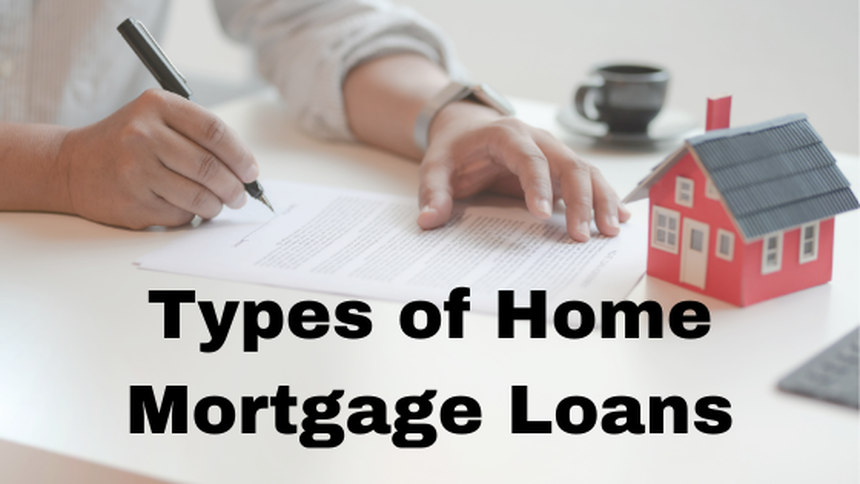|
A huge aspect of purchasing a home is finding the right mortgage loan for you. There are several different types of mortgages that each have their own advantages and disadvantages. You should always speak with a mortgage lender to review what your best options would be. Below is a brief outline of some of the most common loans you may want to consider. While reviewing mortgage loans might not seem exciting on the surface, just keep in mind that the right mortgage loan can help save you money and planning how to spend that extra money is definitely exciting.
Conventional Loans
These loans are most often conforming, meaning they stay within the federal limits set by Freddie Mac and Fannie Mae (government owned mortgage purchasers). In the Shenandoah Valley the cap is $510,400. With these loans, if you put down less than 20% of the purchase price for the home, you will pay a Private Mortgage Insurance premium each month until you reach 20% equity in your home.
Fixed Rate Loans
This is the most common mortgage loan, making up 75% of all home loans. These loans come in 15, 20 and 30 year terms. While the 30 year term is the most popular, the 15 year term will build equity faster, in part due to a lower interest rate. The interest rate stays fixed so the monthly payments remain the same for the duration of the loan; this is great for budgeting and there are no surprises down the road if you plan to stay in your house for several years. The down-side is that you could end up paying more in interest than you would with a different kind of loan.
Adjustable Rate Mortgage Loans
With ARM loans, there is an introductory period when the interest rate is fixed (one month to 10 years) after which the loan interest rate can fluctuate according to the index they are tied to. ARM loans can be attractive to buyers who don’t plan to stay in their house long-term because their initial rates are typically lower than the fixed rate loans but they come with the risk of a much higher interest rate after the fixed period.
Government Agency Backed Loans
Unlike conventional loans, these loans have more restrictions; investment properties and second homes are typically not eligible. However, these loans offer a much lower down payment and typically lower interest rates.
VHDA Loans
Virginia Housing Development Authority offers a variety of loans designed to meet the needs of Virginia's homebuyers, including Conventional 30 Year Fixed (Fannie Mae No MI, Fannie Mae Reduced MI), plus FHA, VA (Veterans Affairs), and RHS (Rural Housing Services) loans which are listed below. VHDA also offers a down payment assistance grant, closing cost assistance, and mortgage credit certificates. Something to keep in mind is that most VHDA loans are only for first time homebuyers and there is a maximum income and loan limit by region.
FHA Loans
Federal Housing Administration Loans come in 15 or 30 year fixed rates and offer a low down payment requirement (can be as low as 3.5%), plus the ability to use a financial gift or inheritance for the down payment. Lower credit score and debt-to-ratio requirements are also advantages to FHA loans, particularly for first time homebuyers. The biggest drawback is that FHA borrowers must pay an upfront mortgage insurance fee of 1.75% of the total loan amount, as well as a monthly premium regardless of down payment size.
USDA/ RHS Loans
United States Department of Agriculture offers Rural Housing Service Loans. They can be a good option if you wish to purchase a single family home that is located in an eligible, rural area. This loan offers a no down payment option and tends to have lower interest rates than a conventional mortgage. The disadvantages to USDA loans are that you will have to pay mortgage insurance premiums and there is an income limit (for Harrisonburg Metro area- not the city itself, which is not eligible- this is $86,850 for a 4 person or less household) as well as a loan limit ($265,400 for Rockingham County).
VA Loans
If you've served in the United States military, you may qualify for a Veterans Affairs loan. A VA loan doesn’t require a down payment and there are no mortgage insurance requirements. There is also no minimum credit score requirement and interest rates tend to be lower. Because these loans come with so many benefits, there are a few restrictions; the property in question must be your primary residence, and it must meet “minimum property requirements" (not a fixer upper) which can prolong the appraisal process. There is also a funding fee associated with the loan.
There are several other, lesser-known mortgage loans (such as Balloon, Bridge, Jumbo, Interest-Only, Rental Property, etc) that may warrant some additional research as you determine the best loan for your situation. While one mortgage type may work for your friend or relative, it may not be the best fit for you which is why you should work with your lender and review the terms of any loan carefully.
Sources:
https://www.consumerfinance.gov/consumer-tools/mortgages/answers/basics/ https://www.fmbankva.com/fixed-rate-loans/#tab-id-1 https://www.mortgagecalculator.org/helpful-advice/types-of-mortgages.php https://www.bankrate.com/finance/mortgages/5-basic-types-of-mortgage-loans-1.aspx https://www.realtor.com/advice/finance/types-of-mortgages/ https://www.vhda.com/Homebuyers/VHDAHomeLoans/Pages/VHDAHomeLoans.aspx https://www.rd.usda.gov/files/RD-GRHLimitMap.pdf https://www.bankrate.com/finance/mortgages/virginia-jumbo-loan-limits-by-county.aspx https://www.fhfa.gov/DataTools/Downloads/Documents/Conforming-Loan-Limits/FullCountyLoanLimitList2020_HERA-BASED_FINAL_FLAT.pdf https://www.investopedia.com/terms/r/rhsloan.asp
29 Comments
Like many terms in the real estate industry, it can be hard to really get a handle on what a term like "PMI" means, but we’re breaking down the facts behind PMI once and for all. Read on to see what it actually means, how it works, and why it may have gotten a bad rap.
So, what exactly is PMI?
“PMI” stands for Private Mortgage Insurance.
These days, it’s common for lenders to require it in order to be approved for a mortgage if you plan on putting less than 20% down on the home. Since buyers who make lower down payments have less automatic equity in the home, they’re considered a bigger risk. Therefore, banks require these buyers to take out a mortgage insurance policy for their protection. These policies shield the bank against loss in the event that the buyer stops making mortgage payments. And, if the buyer defaults on the loan, they have the ability to recoup their investment through the policy. It’s important to note, however, that this policy will not protect you, as the buyer, if you decide to stop making mortgage payments. If that happens, your credit score will suffer and you could end up losing your home to foreclosure. How does PMI work?
How your PMI functions will depend largely on the loan program you choose, so you’ll want to ask your lender to go over the specifics with you in depth. That said, there are a few factors that impact every policy.
They are: Rate
Again, the rate you pay will depend largely on the loan program that you choose. FHA loans are standardized while conventional ones are more variable. With a conventional loan, your rate is determined by the lender, based on your credit score and loan-to-value ratio, or how large of a down payment you’ve made. Typically, the higher both those things are, the lower your rate will be.
As a general rule, PMI tends to run anywhere from $30-$70 dollars per month for each $100,000 that was borrowed. If, for example, you purchased a $300,000 home, you could generally expect to pay between $90-$210 per month towards your policy. Payment
Payment methods also vary by policy. However, there are a couple of common options. All FHA loans, as a rule, are paid in the same manner. They come with an initial upfront payment towards your premium and then a recurring annual payment each year that you hold the loan.
Conventional loans, on the other hand, work on a case-by-case basis. In some instances, your PMI is tacked on to your monthly mortgage payment, along with your mortgage interest and other fees. Like these fees, this portion of the payment does not go towards paying down your principal or building equity. In other cases, you may have the option to make lump-sum payments or to finance your entire premium through a smaller loan. Length of policy
This is another instance where FHA and conventional loans differ. Since FHA loans are government-backed, they require that you pay PMI for the entire length of the loan. Conventional loans, on the other hand, typically will allow you to drop your PMI once you build up more equity in the home. Usually, once you’ve paid off over 20% of the loan. However, you’ll want to check with your lender to verify the details of your specific policy.
How to avoid paying PMI
If you’re against paying PMI, you do have some options to avoid having to take out a policy.
These are the most common ones: Conventional Loans
Typically, if you can qualify for a conventional loan and make a down payment of 20% or more, you won’t be required to take out a policy.
VA loans
Thanks to the GI bill, the PMI requirement is waived for qualified veterans. You also have the ability to finance up to 100% of the home’s value.
Physician Loans
Many physician loans also forgo this requirement.
Portfolio/non-conforming loans
Since portfolio and non-conforming loans each have their own unique set of terms, you may be able to find some options without a PMI requirement.
Piggybacking
Piggybacking” refers to the practice of taking out an additional, smaller loan to cover your entire PMI premium upfront. However, keep in mind, that with this tactic, you’ll have an additional monthly payment to contend with, one that may come with the higher interest rates that are common among smaller loans.
Though having to pay PMI is not the most fun thing in the world, it’s not always the root of all evil either. It’s crucial to talk your lender about the loan as a whole before choosing the best option for you. Often, the PMI requirement gives banks enough security to allow them to offer you better interest rates than they would if it wasn’t there, meaning you may actually end up paying less in fees over the life of your loan, all things considered. Be sure to do your research before agreeing to any specific loan terms. This article originally appeared on OpenListings. |
Categories
All
|

Email - Click Here
Phone - 540-246-9067 Website - www.mattiasclymer.com Schedule a Meeting, Download Contact Card, Etc... |
Funkhouser Real Estate Group | 401 University Boulevard, Harrisonburg, VA 22801 | 540-434-2400 | ©2021 | Privacy Policy | All rights reserved.
Licensed in the Commonwealth of Virginia


 RSS Feed
RSS Feed
